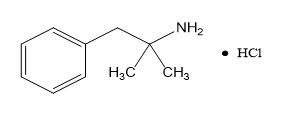Drug Detail:Qsymia (Phentermine and topiramate [ fen-ter-meen-and-toe-pir-a-mate ])
Generic Name: PHENTERMINE HYDROCHLORIDE 7.5mg, TOPIRAMATE 46mg
Dosage Form: capsule, extended release
Drug Class: Anorexiants
Patient Selection
Adults
Select adult patients for QSYMIA treatment based on BMI [see Indications and Usage (1)] . Determine the patient's BMI by dividing weight (in kilograms) by height (in meters) squared. A BMI conversion table based on height [inches (in) or centimeters (cm)] and weight [pounds (lb) or kilograms (kg)] is provided below (see Table 1).
| Table 1. BMI Conversion Chart |
|---|
 |
Pediatric Patients Aged 12 Years and Older
Select pediatric patients for QSYMIA treatment based on BMI percentile [see Indications and Usage (1)] . See Table 2 for BMI percentiles by age and sex for pediatric patients aged 12 years and older.
| Male | Female | |
|---|---|---|
| Age (in years) | 95th Percentile BMI Value | 95th Percentile BMI Value |
| 12 | 24.2 | 25.3 |
| 12.5 | 24.7 | 25.8 |
| 13 | 25.2 | 26.3 |
| 13.5 | 25.6 | 26.8 |
| 14 | 26.0 | 27.3 |
| 14.5 | 26.5 | 27.7 |
| 15 | 26.8 | 28.1 |
| 15.5 | 27.2 | 28.5 |
| 16 | 27.6 | 28.9 |
| 16.5 | 27.9 | 29.3 |
| 17 | 28.3 | 29.6 |
| 17.5 | 28.6 | 30.0 |
Recommended Testing Prior to and During Treatment with QSYMIA
Prior to QSYMIA initiation and during treatment with QSYMIA, the following is recommended:
- Obtain a negative pregnancy test before initiating QSYMIA in patients who can become pregnant and monthly during QSYMIA therapy. QSYMIA is contraindicated during pregnancy [see Contraindications (4), Warnings and Precautions (5.1) and Use in Specific Populations (8.3)].
- Obtain a blood chemistry profile that includes bicarbonate, creatinine, and potassium in all patients, and glucose in patients with type 2 diabetes on antidiabetic medication prior to initiating QSYMIA treatment and periodically during treatment [Warnings and Precautions (5.8, 5.9, 5.10, 5.15)].
Recommended Dosage and Administration
The recommended dosage, titration, and administration of QSYMIA are as follows:
- Take QSYMIA orally once daily in the morning with or without food. Avoid administration of QSYMIA in the evening due to the possibility of insomnia.
- The recommended starting dosage is QSYMIA 3.75 mg/23 mg (phentermine 3.75 mg/topiramate 23 mg) orally once daily for 14 days; after 14 days increase to the recommended dosage of QSYMIA 7.5 mg/46 mg (phentermine 7.5 mg/topiramate 46 mg) orally once daily.
- After 12 weeks of treatment with QSYMIA 7.5 mg/46 mg, evaluate weight loss for adults or BMI reduction for pediatric patients aged 12 years and older. If an adult patient has not lost at least 3% of baseline body weight or a pediatric patient has not experienced a reduction of at least 3% of baseline BMI, increase the dosage to QSYMIA 11.25 mg/69 mg (phentermine 11.25 mg/topiramate 69 mg) orally once daily for 14 days; followed by an increase in the dosage to QSYMIA 15 mg/92 mg (phentermine 15 mg/topiramate 92 mg) orally once daily.
- After 12 weeks of treatment with QSYMIA 15 mg/92 mg, evaluate weight loss for adults or BMI reduction for pediatric patients aged 12 years and older. If an adult patient has not lost at least 5% of baseline body weight or a pediatric patient has not experienced a reduction of at least 5% of baseline BMI, discontinue QSYMIA [see Dosage and Administration (2.4)] , as it is unlikely that the patient will achieve and sustain clinically meaningful weight loss with continued treatment.
- Monitor the rate of weight loss in pediatric patients. If weight loss exceeds 2 lbs (0.9 kg)/week, consider dosage reduction.
Discontinuation of QSYMIA 15 mg/92 mg
Discontinue QSYMIA 15 mg/92 mg gradually by taking QSYMIA 15 mg/92 mg once daily every other day for at least 1 week prior to stopping treatment altogether, due to the possibility of precipitating a seizure [see Warnings and Precautions (5.12) and Drug Abuse and Dependence (9.3)].
Recommended Dosage in Patients with Renal Impairment
Avoid use of QSYMIA in patients with end-stage renal disease on dialysis.
In patients with severe (creatinine clearance [CrCl] less than 30 mL/min) or moderate (CrCl greater than or equal to 30 and less than 50 mL/min) renal impairment (CrCl calculated using the Cockcroft-Gault equation with actual body weight), the maximum recommended dosage is QSYMIA 7.5 mg/46 mg once daily.
The recommended dosage in patients with mild (CrCl greater or equal to 50 and less than 80 mL/min) renal impairment is the same as the recommended dosage for patients with normal renal function [see Warnings and Precautions (5.9), Use in Specific Populations (8.6), and Clinical Pharmacology (12.3)] .
Recommended Dosage in Patients with Hepatic Impairment
Avoid use of QSYMIA in patients with severe hepatic impairment (Child-Pugh score 10 - 15). In patients with moderate hepatic impairment (Child-Pugh score 7 - 9), the maximum recommended dosage is QSYMIA 7.5 mg/46 mg once daily.
The recommended dosage of QSYMIA in patients with mild hepatic impairment (Child-Pugh 5 - 6) is the same as the recommended dosage in patients with normal hepatic function [see Use in Specific Populations (8.7), and Clinical Pharmacology (12.3)] .




